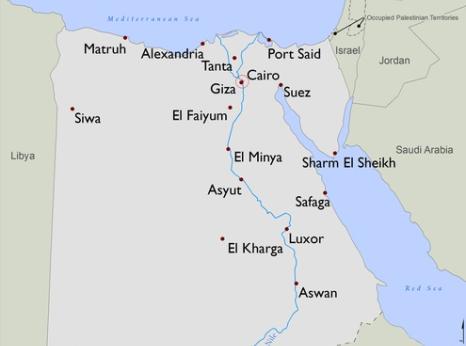Egypt: Unjustly Held Student Denied Prosthetic Leg

Oqba Hashad was studying business at the University of Sadat City (USC), in Menoufia governorate, prior to his arrest. On 20 May 2019, National Security Agency (NSA) agents stormed his student residence and arrested everyone without a warrant. All other students were released withing days, except for Oqba Hashad. His brother Amr Hashad, a human rights activist and legal researcher, fled Egypt in 2019 after his release from prison. He was arrested in 2014 in connection to his activism with the student union at Assiut University and opposition to the university’s decision to engage a private security firm. Subsequently, a court sentenced Amr Hashad to three years in prison after convicting him of charges of joining a terrorist organization, attempting to overthrow the government and inciting protests. From exile, Amr Hashad continued to document human rights violations in Egypt including enforced disappearances and cruel and inhuman detention conditions in Egyptian prisons. Oqba Hashad’s mother was also detained and questioned for nine hours during a visit to Shebin Al-Kom prison, where Oqba Hashad was held at the time, in a relation to a Facebook post written by Amr Hashad in December 2020 about his brother being banned from accessing his prosthetic leg and the injustices suffered by their family.
Oqba Hashad is currently detained in the Wadi El Natroun prison. On 7 August 2022, relatives of Oqba Hashad’s cellmate, who had visited the prison that day, called Oqba Hashad’s family to inform them that his prosthetic leg broke. His family rushed to the prison to collect the broken prosthetic leg, and took it for repairs at a specialised clinic, where a doctor and an engineer told them that a replacement was needed. The family did not have the financial means to replace it, and therefore sought to repair it instead. On 9 August 2022, when his relatives returned to the prison with the prosthetic leg, the prison authorities insisted on carrying out a thorough inspection, attempted to dismantle it, and informed the family that they will submit it for further inspections. To date, the authorities have not returned the repaired prosthetic leg to him or secured a replacement.
Amnesty International has documented the targeting of relatives of Egyptian dissidents or critics abroad, including through arbitrarily arrests and detention, summoning for questioning and other forms of harassment. For instance, they have forcibly disappeared and denied healthcare to Salah Soltan, father of prominent US based human rights defender Mohamed Soltan, in retaliation for his son’s activism. In August 2023, the authorities arrested the fathers of Egyptian journalist Ahmed Gamal Ziada, based in Belgium, and German-Egyptian activist Fagr al-Adly, based in Germany. Both have been questioned about their relatives’ activism.
As a state party to the Convention on the Rights of Persons with Disabilities, Egypt must fulfil its obligations to ensure that when persons with disabilities are deprived of their liberty, they are, on an equal basis with others, entitled to guarantees in accordance with international human rights law and are provided with reasonable accommodation and with health services specifically because of their disabilities.
On 3 September 2021, United Nations experts, including the Special Rapporteur’s on the situation of human rights defenders, the Working Group on Arbitrary Detention, the Special Rapporteur on the rights of persons with disabilities, the Working Group on Enforced or Involuntary Disappearances, the Special Rapporteur on the promotion and protection of the right to freedom of opinion and expression, the Special Rapporteur on the right of everyone to the enjoyment of the highest attainable standard of physical and mental health, the Special Rapporteur on the promotion and protection of human rights and fundamental freedoms while countering terrorism and the Special Rapporteur on torture and other cruel, inhuman or degrading treatment or punishment sent a letter to the Egyptian authorities highlighting the enforced disappearance and prolonged arbitrary detention of Oqba Hashad.